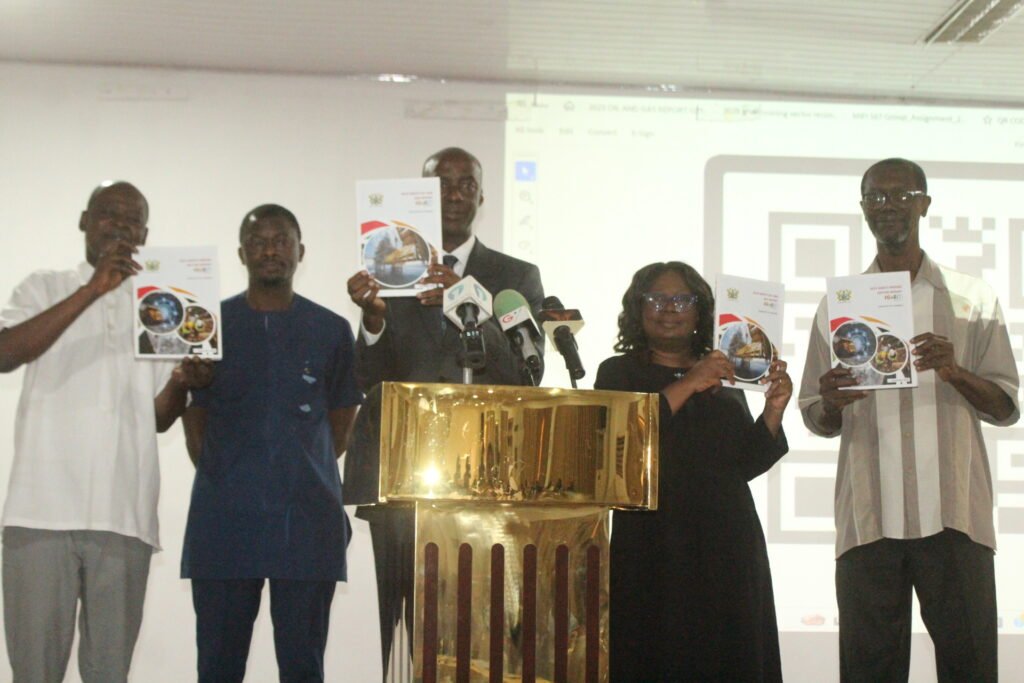
When the Minister of Health, Kwabena Mintah Akandoh, took to the floor of Parliament and later the Presidency’s Accountability Series to speak about Ghana’s National E-Healthcare Programme, few expected his remarks to spark a national debate.
His claims — that the Lightwave Health Information Management System (LHIMS) was being controlled from India, and that the implementing company, Lightwave E-Healthcare Solutions Ltd, had underperformed despite being overpaid — have since generated confusion and concern.
This week, Lightwave E-Healthcare Solutions Ltd has broken its silence. In a detailed press statement, the company described the Minister’s allegations as “false, misleading, and damaging to the integrity of Ghana’s e-health achievements.”
A Ghanaian success story
Lightwave’s story began in 2015, when it was established by a Ghanaian entrepreneur with a mission to digitize healthcare delivery in Ghana and beyond. The company is fully Ghanaian-owned, employs over 150 local professionals, and operates entirely from Ghana. Its sister company in Atlanta, USA, exists solely for international partnerships — both entities share the same Ghanaian ownership.
In 2016, the government contracted Lightwave’s U.S. affiliate to pilot Ghana’s first electronic medical records project in the Central Region — a project completed successfully in 2017. Encouraged by that success, the Ministry of Health (MOH) signed a new contract in 2019 with the Ghana-based Lightwave E-Healthcare Solutions Ltd to roll out Phase 2 — a US$100 million nationwide project covering 950 health facilities.
The India myth
At the heart of the controversy lies the claim that Ghana’s electronic medical data is being controlled from India. Lightwave says this is “completely false.” “All Ghanaian patient data remains the property of the Ministry of Health,” the company clarified. “The servers that store and manage this data sit right here in Accra, within the Ministry’s data centre. Lightwave does not control or own any medical records.” What Lightwave does own, it says, is the software platform (LHIMS) — a system licensed to the Ministry for use under the contract. The data, infrastructure, and national health information remain under Ghanaian custody and sovereignty.
A question of numbers
The Minister also claimed that Lightwave has completed less than 50% of the work but has been paid 77percent of the contract sum. According to Lightwave, that statement is “a manipulation of figures.”
The company explained that the project’s scope was weighted by facility type — a single teaching hospital carries far more cost and complexity than dozens of small health centres. By the end of 2024, Lightwave had deployed LHIMS in all teaching hospitals, regional hospitals, and district hospitals — a total of 253 major facilities, representing 72percent of the project’s contract value. Payments, it said, were made according to verified milestones approved by the MOH itself.
“The claim that we were overpaid for underperforming is mathematically and factually wrong,” the company noted. “It’s like saying a party lost an election because it won only five out of sixteen regions — without checking the actual votes.”
Delays, not default
Lightwave admits that the nationwide rollout was not completed within the original three-year timeframe, but attributes that to factors largely beyond its control — including late payment of invoices (some taking up to 20 months to process), delayed deployment instructions from the MOH, and the global COVID-19 pandemic.
Despite these setbacks, the company says it never suspended work or enforced the contract’s penalty clauses, preferring cooperation over confrontation. “These delays caused severe financial strain,” the company said, “but we chose to keep Ghana’s e-health system running rather than disrupt services to patients.”
Hardware, quality, and integrity
The Minister’s assertion that Lightwave supplied substandard equipment was also firmly rejected. Every item, from servers to laptops, the company explained, was delivered to or above contract specifications, with all substitutions cleared under the agreement’s “substantial equivalence” provision.
Under the contract, Lightwave was required to supply 9,544 laptops — of which 7,060 have been delivered to deployed facilities. The remaining units are reserved for facilities yet to be brought online. “There has never been any compromise on quality,” the statement emphasized. “In several instances, we provided higher specifications at no additional cost.”
Unpaid work and unacknowledged commitment
Lightwave also revealed that it has continued to operate the LHIMS system beyond the contract’s official expiry in December 2024, without receiving payment for eight months of support in 2025.
In addition, the company says it has provided over US$25 million worth of extra services — including integration with the NHIA, banks, and the Births and Deaths Registry — at the MOH’s own request, but has not been paid for these efforts. Despite this, the LHIMS platform remains operational in more than 200 health facilities nationwide, including the Cape Coast Teaching Hospital, Effia Nkwanta, and Eastern Regional Hospital, among others.
A call for resolution, not rivalry
After nearly a decade of collaboration with successive governments, Lightwave says it is “pained but not deterred” by the recent developments. The company remains open to dialogue and eager to complete the final phase of deployment, which mainly covers smaller health centres. “We are not at war with the Ministry,” the company stated. “We seek cooperation, not conflict. For almost nine years, LHIMS has helped make Ghana a model for digital health in Africa. We remain committed to ensuring that every Ghanaian benefits from a modern, efficient, and secure health system.”
A Ghanaian innovation worth protecting
As the dust settles on this public dispute, Lightwave’s message is simple: Ghana built this system, and Ghana owns it. For a country that has often relied on foreign technology partners, the LHIMS story remains a rare example of homegrown innovation at national scale. Whether through misunderstanding or politics, Lightwave insists that misinformation should not undo years of progress in Ghana’s health digitization journey.
The post Lightwave sets the record straight: The real story behind e-health system controversy appeared first on The Business & Financial Times.
Read Full Story


















Facebook
Twitter
Pinterest
Instagram
Google+
YouTube
LinkedIn
RSS